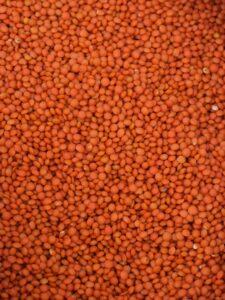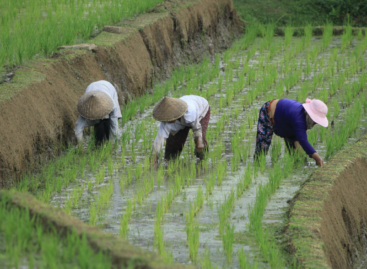The situation of lentil production in Hungary: challenges and opportunities
In recent years, lentil production has shown a significant decline globally, and in Hungary, production is only carried out on a negligible area. The domestic market’s import dependence is being alleviated, among other things, by the availability of seeds of the two lentil varieties listed in the National Variety Register, ‘Pinklevi’ and ‘Rézi’, but further support would be needed to expand the production area – writes Agrárszektor.
 According to FAO data, the world’s lentil production area has decreased from 6.5 million hectares to 5.5 million hectares in the past five years. The largest producers include India (1.73 million hectares), Canada (1.71 million hectares), and Australia (500 thousand hectares). In Europe, however, there are only negligible production areas: only 5,300 hectares in Ukraine and 67 hectares in North Macedonia. In Hungary, the peak of lentil production was in 1987, when production was carried out on more than 10,000 hectares. This decreased to less than a thousand hectares by 2002, and then halved further by 2008. In recent years, seed production has almost completely ceased.
According to FAO data, the world’s lentil production area has decreased from 6.5 million hectares to 5.5 million hectares in the past five years. The largest producers include India (1.73 million hectares), Canada (1.71 million hectares), and Australia (500 thousand hectares). In Europe, however, there are only negligible production areas: only 5,300 hectares in Ukraine and 67 hectares in North Macedonia. In Hungary, the peak of lentil production was in 1987, when production was carried out on more than 10,000 hectares. This decreased to less than a thousand hectares by 2002, and then halved further by 2008. In recent years, seed production has almost completely ceased.
The lentil varieties ‘Pinklevi’ and ‘Rézi’ included in the National Variety Register received state recognition in 2019, and their seeds were first commercially available in 2022. Currently, seed production is continuous, but further support would be needed to boost production. In Hungary, lentils were produced on only 284 hectares in 2021, while the country’s annual import reaches 4,400 tons. Exports are also present, but most of them come from re-exports.
Expanding lentil production is key to stabilizing the domestic market. Lentils are not included in the current CAP (Common Agricultural Policy) subsidies, but changing this could contribute to increasing producer enthusiasm. According to Nóra Mendlerné Drienyovszki, senior research fellow at the DE AKIT Nyíregyháza Research Institute, the future of domestic lentil cultivation depends on appropriate subsidies.
Related news
FAO food price index fell further in December
🎧 Hallgasd a cikket: Lejátszás Szünet Folytatás Leállítás Nyelv: Auto…
Read more >Related news
Storck Hungária: new sales manager has arrived
🎧 Hallgasd a cikket: Lejátszás Szünet Folytatás Leállítás Nyelv: Auto…
Read more >









